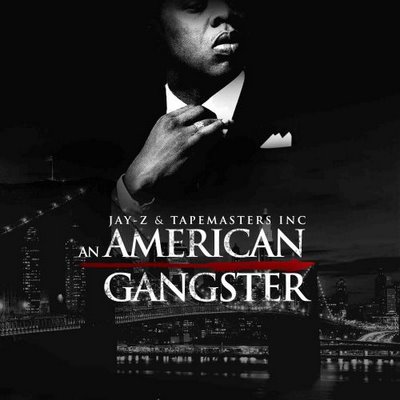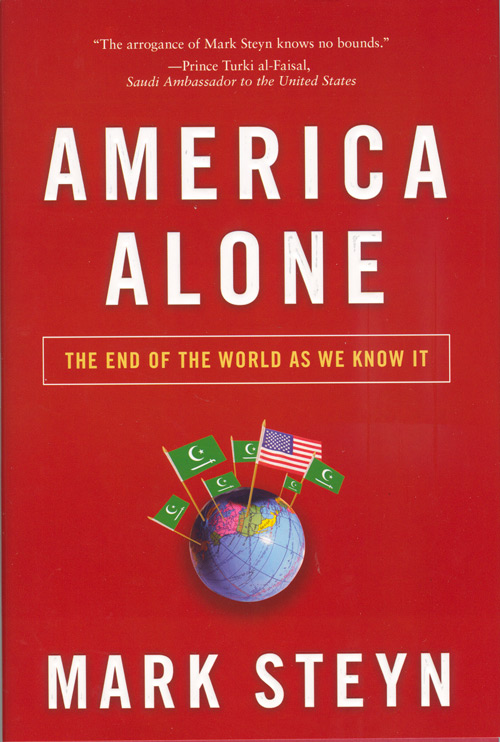Monday, July 30, 2007
Lawyers Are Sensitive
Wow. Quite the response from the latest issue of MacLean's from the legal community.
Having a number of friends who are in said profession, I have to watch my tongue here. That being said, I think that the response thus far has really be a case of "thou doth protest too much, me thinks." I really think the reaction from various lawyers is not only over-the-top, but poor strategy in general.
Firstly, the article - which I have read - is actually an interview with a lawyer, Philip Slayton, who wrote a book entitled Lawyers Gone Bad: Money, Sex and Madness in Canada's Legal Profession, about the shortcomings of the legal profession. Its not even MacLean's folk who are drawing the "rats" conclusion. So, targeting MacLean's doesn't make a lot of sense.
Secondly, sending out press releases, writing articles, blogs, and general wringing of hands is only playing into MacLean's ultimate goal: to sell magazines. If you want more people to read that article, that's a hell of a way to do it. Where there's smoke there's fire. I ask you: are these the actions of an innocent party? (Sorry, I couldn't resist)
Thirdly, Slayton is totally right in that law firms are driven by profit. And in any profit-driven company, the client is always right. Law firms that consistently tell their clients "you really shouldn't do that, and I'm not going to find a legal loophole to enable you" won't be in business for long. I've seen it - the emphasis is finding the gray area and arguing on definitons, rather than focusing on the spirit or intent of the law in question.
Fourth, I think the lawyers who are commenting (Exhibit A, your honour) are wholly missing the point. Its author, as he points out in the interview, is not trying to use specific cases to draw the conclusion that the entire profession is corrupt or evil; he's saying that its a major flaw that lawyers are disciplined by lawyers. The US and the UK are reforming their legal systems to address that issue. Right now, all disciplinary matters in the US are tried in court rather than an internal system like the Law Society of Upper Canada.
No Canadian reforms are being discussed and Mr. Slayton thinks it should be. Doesn't he have a point? Isn't the disciplinary system, as it stands, a conflict of interest? Aren't these knee-jerk defensive responses only proving his point - that the legal profession has invested self interests and view their colleagues in a particular light?
For my part, I have had a lot of experience with lawyers. Many are very good friends of mine. In general, they are good, honest, community-minded people. But being a lawyer is like being in an exclusive club; and they all are proud to flash their membership badges. Law firms generally are cliquish, with a lot of self-aggrandizing backslapping: they're only a secret handshake away from being the Stonecutters.
Don't you think they would err on the side of on of their "own"? And even if that risk exists, shouldn't steps being taken to make sure you are above reproach when dealing with matters of trust, personal gain and criminality?
Word of advice for you legal beagles out there: people don't like lawyers for the same reason they don't like mechanics - you know more than they do about issues that affect them deeply and personally. In many cases, their life (physically, financially, professionally or otherwise) is in your hands. You have specialized knowledge and you charge out the butt for it. People are going to resent you. Unless you're doing legal aid on the east side of Vancouver, stop acting like some Robin Hood figure.
And instead of the "et tu, Brute?" routine, look past the senational headlines that are designed to get people to pick up a magazine and focus on what Slayton is saying. If you're truly as professional as you say you are, you'll see his critique as an opportunity to reflect and evaluate, rather than jump up and down in protest.
Case closed. Oops! I mean, I rest my case.
UPDATE: Looks like my tags worked. We've had visits from lotsa law firms and the Canadian Bar Association.
Oh, and Paul Wells. Of course, now that I've put him name on my blog means we get another visit!
Having a number of friends who are in said profession, I have to watch my tongue here. That being said, I think that the response thus far has really be a case of "thou doth protest too much, me thinks." I really think the reaction from various lawyers is not only over-the-top, but poor strategy in general.
Firstly, the article - which I have read - is actually an interview with a lawyer, Philip Slayton, who wrote a book entitled Lawyers Gone Bad: Money, Sex and Madness in Canada's Legal Profession, about the shortcomings of the legal profession. Its not even MacLean's folk who are drawing the "rats" conclusion. So, targeting MacLean's doesn't make a lot of sense.
Secondly, sending out press releases, writing articles, blogs, and general wringing of hands is only playing into MacLean's ultimate goal: to sell magazines. If you want more people to read that article, that's a hell of a way to do it. Where there's smoke there's fire. I ask you: are these the actions of an innocent party? (Sorry, I couldn't resist)
Thirdly, Slayton is totally right in that law firms are driven by profit. And in any profit-driven company, the client is always right. Law firms that consistently tell their clients "you really shouldn't do that, and I'm not going to find a legal loophole to enable you" won't be in business for long. I've seen it - the emphasis is finding the gray area and arguing on definitons, rather than focusing on the spirit or intent of the law in question.
Fourth, I think the lawyers who are commenting (Exhibit A, your honour) are wholly missing the point. Its author, as he points out in the interview, is not trying to use specific cases to draw the conclusion that the entire profession is corrupt or evil; he's saying that its a major flaw that lawyers are disciplined by lawyers. The US and the UK are reforming their legal systems to address that issue. Right now, all disciplinary matters in the US are tried in court rather than an internal system like the Law Society of Upper Canada.
No Canadian reforms are being discussed and Mr. Slayton thinks it should be. Doesn't he have a point? Isn't the disciplinary system, as it stands, a conflict of interest? Aren't these knee-jerk defensive responses only proving his point - that the legal profession has invested self interests and view their colleagues in a particular light?
For my part, I have had a lot of experience with lawyers. Many are very good friends of mine. In general, they are good, honest, community-minded people. But being a lawyer is like being in an exclusive club; and they all are proud to flash their membership badges. Law firms generally are cliquish, with a lot of self-aggrandizing backslapping: they're only a secret handshake away from being the Stonecutters.
Don't you think they would err on the side of on of their "own"? And even if that risk exists, shouldn't steps being taken to make sure you are above reproach when dealing with matters of trust, personal gain and criminality?
Word of advice for you legal beagles out there: people don't like lawyers for the same reason they don't like mechanics - you know more than they do about issues that affect them deeply and personally. In many cases, their life (physically, financially, professionally or otherwise) is in your hands. You have specialized knowledge and you charge out the butt for it. People are going to resent you. Unless you're doing legal aid on the east side of Vancouver, stop acting like some Robin Hood figure.
And instead of the "et tu, Brute?" routine, look past the senational headlines that are designed to get people to pick up a magazine and focus on what Slayton is saying. If you're truly as professional as you say you are, you'll see his critique as an opportunity to reflect and evaluate, rather than jump up and down in protest.
Case closed. Oops! I mean, I rest my case.
UPDATE: Looks like my tags worked. We've had visits from lotsa law firms and the Canadian Bar Association.
Oh, and Paul Wells. Of course, now that I've put him name on my blog means we get another visit!
Labels: Law, Lawyers, MacLean's, overreaction, Philip Slayton
Comments:
<< Home
Unless you're doing legal aid on the east side of Vancouver, stop acting like some Robin Hood figure.
I generally agree with you that the tactis used may not have been the best. I think the frustrating thing for lawyers is that, unlike almost any other industry, doing pro bono work is absolutely the norm, at least amongst corporate/commercial lawyers. Despite this, they are villified by many.
On a side note, what is going on with Macleans? That magazine has turned into sensationalistic garbage. If it wasn't for Wells, I would never pick it up.
I generally agree with you that the tactis used may not have been the best. I think the frustrating thing for lawyers is that, unlike almost any other industry, doing pro bono work is absolutely the norm, at least amongst corporate/commercial lawyers. Despite this, they are villified by many.
On a side note, what is going on with Macleans? That magazine has turned into sensationalistic garbage. If it wasn't for Wells, I would never pick it up.
Thanks, Rob. Now here comes the trick question. What are a few of your favourite articles from the vanished golden age of Maclean's?
Lovely. The one time Paul Wells comes on our blog is after a "Paul Wells" and "awesome" Google search puts him here.
Go chase your groupies somewhere else, Wells!
In all seriousness, I have two comments for Rob. Firstly, having worked in 2 law firms, I can say that pro bono work may done frequently by some, it is certainly not the norm - at least in my experience.
Secondly, I think MacLean's rocks. A tad sensational maybe, but they are putting an opinion out here, and I admire them for it. I think they are trying to get Canadians to think and ask tough questions. Makes for interesting articles.
In fact, I (and a number of my pals) have taken subscriptions. There are enough bland, centrist rags out there for everyone else to pick up. Oh, and a friend of mine wrotes for them.
Go chase your groupies somewhere else, Wells!
In all seriousness, I have two comments for Rob. Firstly, having worked in 2 law firms, I can say that pro bono work may done frequently by some, it is certainly not the norm - at least in my experience.
Secondly, I think MacLean's rocks. A tad sensational maybe, but they are putting an opinion out here, and I admire them for it. I think they are trying to get Canadians to think and ask tough questions. Makes for interesting articles.
In fact, I (and a number of my pals) have taken subscriptions. There are enough bland, centrist rags out there for everyone else to pick up. Oh, and a friend of mine wrotes for them.
I used to really like Allan Fotheringham. Gatehouse can be good too.
My favourite Macleans article was Wells' piece after the last election, which was of course during the current sensationalistic eye-sore conservative wal-mart-loving phase of the magazine. ;)
My favourite Macleans article was Wells' piece after the last election, which was of course during the current sensationalistic eye-sore conservative wal-mart-loving phase of the magazine. ;)
I completely disagree with this statement "Word of advice for you legal beagles out there: people don't like lawyers for the same reason they don't like mechanics - you know more than they do about issues that affect them deeply and personally. In many cases, their life (physically, financially, professionally or otherwise) is in your hands. You have specialized knowledge and you charge out the butt for it. People are going to resent you. Unless you're doing legal aid on the east side of Vancouver, stop acting like some Robin Hood figure."
I do not think that is true at all. Unlike the legal profession, the job of a mechanic is clear cut... make the car work. It is pretty black and white whether they accomplished their job properly.
While mechanics do not design cars (engineers do for the most part), Lawyers write the laws. Let's face it, the laws are written for lawyers to understand, not the common lay person. There-in lies the distrust in lawyers. The general public sees it as a vast self-serving umbrella that they have little or no control over. Unfortunately they are right.
You may say that is not true, you can "vote" for who you want. Have you ever noticed by far the most common profession for politicians is lawyer?
Unlike the mechanic, while the result may be clear-cut, win or lose, the path to get there is not even remotely clear cut. The average Joe can afford access to some very good mechanics... in the realm of those with lots of money. When it comes to the legal profession, that is not even remotely the case. The best lawyers (and often the best defense) goes to the highest bidder. Often the winning judgement just goes to those with the deepest pockets... how many small companies can afford to fight a patent with a large company no matter how legally right they are?
Post a Comment
I do not think that is true at all. Unlike the legal profession, the job of a mechanic is clear cut... make the car work. It is pretty black and white whether they accomplished their job properly.
While mechanics do not design cars (engineers do for the most part), Lawyers write the laws. Let's face it, the laws are written for lawyers to understand, not the common lay person. There-in lies the distrust in lawyers. The general public sees it as a vast self-serving umbrella that they have little or no control over. Unfortunately they are right.
You may say that is not true, you can "vote" for who you want. Have you ever noticed by far the most common profession for politicians is lawyer?
Unlike the mechanic, while the result may be clear-cut, win or lose, the path to get there is not even remotely clear cut. The average Joe can afford access to some very good mechanics... in the realm of those with lots of money. When it comes to the legal profession, that is not even remotely the case. The best lawyers (and often the best defense) goes to the highest bidder. Often the winning judgement just goes to those with the deepest pockets... how many small companies can afford to fight a patent with a large company no matter how legally right they are?
Subscribe to Post Comments [Atom]
<< Home
Subscribe to Comments [Atom]
 THE CONSERVATIVE HIPSTERS
THE CONSERVATIVE HIPSTERS














